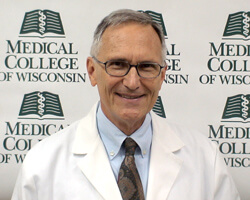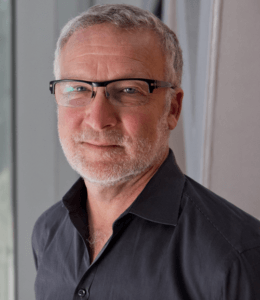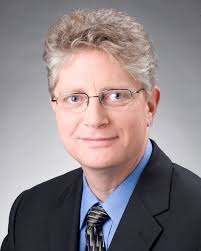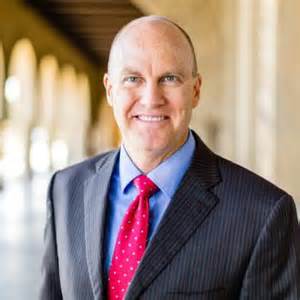
Scientific Advisors
This prestigious group of scientists, who with their diverse areas of expertise guide the CPRA’s efforts to encourage the highest caliber of research and attract scientists of distinction to study Chronic Overlapping Pain Conditions. The distinguished members of the Scientific Advisory Council for the CPRA include the following.
 Allen W. Cowley, Jr., Ph.D., Professor and Chairman of Physiology, Medical College of Wisconsin
Allen W. Cowley, Jr., Ph.D., Professor and Chairman of Physiology, Medical College of Wisconsin
Research Focus: Renal physiology, cardiovascular physiology and genetics & genomics
Dr. Cowley is deeply committed to advancing the scientific understanding of temporomandibular disorders (TMD) and coexisting pain conditions. For 20 years, he’s chaired The TMJ Association’s Scientific Advisory Committee, as well as chaired all seven of TMJA’s Scientific Meetings. Dr. Cowley’s scientific research focuses on obtaining an integrated understanding of the complex diseases of hypertension and kidney diseases using genomic and physiological approaches coupled with computer modeling. Given the historical lack of basic scientific research in the field of TMD and coexisting conditions, his experience with complex cardiovascular and renal diseases has provided a framework that can be broadly applied to these complex diseases.
 Allan I. Basbaum, Ph.D., Professor and Chair, Department of Anatomy, University of California, San Francisco
Allan I. Basbaum, Ph.D., Professor and Chair, Department of Anatomy, University of California, San Francisco
Research Focus:Neurological basis of pain and its control
Dr. Basbaum’s laboratory examines the mechanisms through which tissue and nerve injury produce changes in the peripheral and central nervous system that result in persistent pain. Of particular interest are the circuits that are altered in the setting of chronic pain. Key to their laboratory’s studies is the multidisciplinary approach that they take to the problem, using molecular, neuroanatomical, pharmacological and behavioral analyses. Most recently, they have turned their attention to the possibility of overcoming the neurological (persistent pain) consequences of peripheral nerve damage by transplanting embryonic cortical inhibitory precursor cells into the spinal cord. To date his group has demonstrated that the cells integrate into the host and can ameliorate the persistent pain associated with nerve damage.
 Daniel Clauw, MD, Professor of Anesthesiology, Medicine (Rheumatology) and Psychiatry, University of Michigan
Daniel Clauw, MD, Professor of Anesthesiology, Medicine (Rheumatology) and Psychiatry, University of Michigan
Research Focus: Pain Management, Anesthesiology
Dr. Clauw oversees a multidisciplinary clinical research team that performs both mechanistic studies and clinical trials on chronic conditions characterized by pain and fatigue, including fibromyalgia, chronic fatigue syndrome and gulf war illness. Dr. Clauw and his team have been instrumental in establishing that these systemic conditions, as well as regional pain syndromes such as interstitial cystitis, low back pain, and irritable bowel syndrome, all have common pathogenic and clinical features. One of the group’s primary interests is the study of central and peripheral pain processing using functional MRI and other tools, demonstrating that many patients with these conditions have a widespread disturbance in pain processing.
 Sean Mackey, MD, PhD, Redlich Professor of Anesthesiology, Perioperative and Pain Medicine; Neurosciences; and Neurology, Stanford University
Sean Mackey, MD, PhD, Redlich Professor of Anesthesiology, Perioperative and Pain Medicine; Neurosciences; and Neurology, Stanford University
Research Focus: Pain Medicine, Chronic Pain, Acute Pain, Neuropathic Pain, Low Back Pain, Complex Regional Pain Syndrome, Facial Pain, and Anesthesia
Dr. Mackey leads a multidisciplinary group of researchers whose mission is “To Predict, Prevent and Alleviate Pain through Science, Education and Compassion”. They achieve this through a combination of advanced neuroimaging, psychophysics, neurobehavioral and outcomes methods. Their work involves both mechanistic studies in humans as well as clinical trials of novel and safe therapeutic agents. They work to identify factors that cause people to develop chronic pain after surgery or an injury – and develop interventions to prevent that chronification. Their group has developed an open source (free) outcomes platform to study real-world patients to identify what works, for whom and why.
 Ursula Wesselmann, M.D., Ph.D., Professor of Anesthesiology, Department of Anesthesiology/Division of Pain Management, University of Alabama at Birmingham
Ursula Wesselmann, M.D., Ph.D., Professor of Anesthesiology, Department of Anesthesiology/Division of Pain Management, University of Alabama at Birmingham
Research Focus: Pelvic/urogenital pain
Dr. Wesselmann has a long-standing interest in the neurobiological mechanisms of chronic pain syndromes in women. She is a clinical neurologist and experimental neurophysiologist with subspecialty training in pain management. Over the last 20 years, her NIH-funded studies have focused on the common theme of (1) elucidating peripheral and central pain mechanisms via neurophysiological, neuroanatomical and psychophysical paradigms in health and disease, specifically in females and (2) phenotyping subgroups of patients with pain syndromes based on different pathophysiological mechanisms, with the goal of identifying novel treatment strategies for these different phenotypes based on the underlying pathophysiology.
Share:
